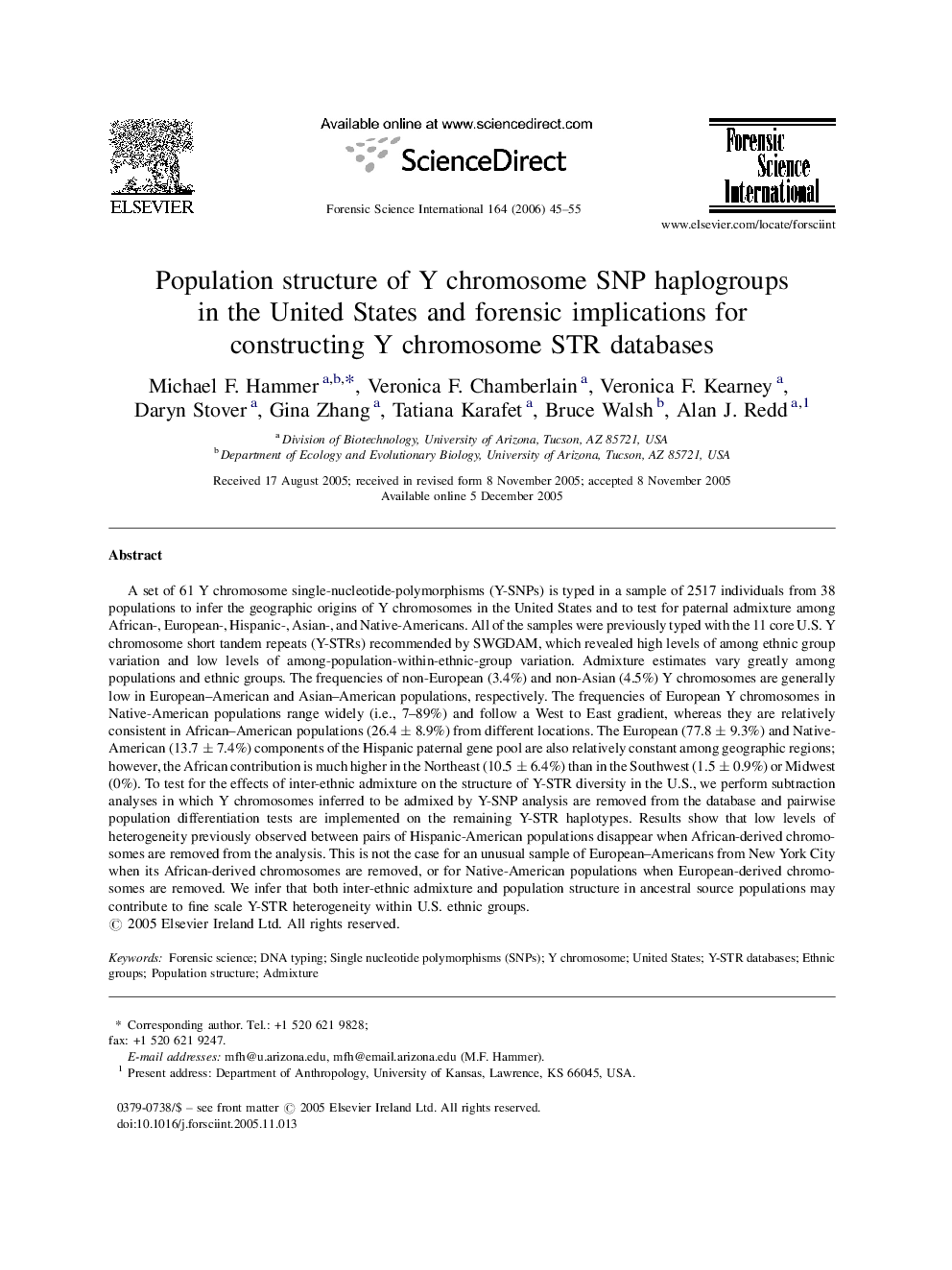| Article ID | Journal | Published Year | Pages | File Type |
|---|---|---|---|---|
| 98409 | Forensic Science International | 2006 | 11 Pages |
A set of 61 Y chromosome single-nucleotide-polymorphisms (Y-SNPs) is typed in a sample of 2517 individuals from 38 populations to infer the geographic origins of Y chromosomes in the United States and to test for paternal admixture among African-, European-, Hispanic-, Asian-, and Native-Americans. All of the samples were previously typed with the 11 core U.S. Y chromosome short tandem repeats (Y-STRs) recommended by SWGDAM, which revealed high levels of among ethnic group variation and low levels of among-population-within-ethnic-group variation. Admixture estimates vary greatly among populations and ethnic groups. The frequencies of non-European (3.4%) and non-Asian (4.5%) Y chromosomes are generally low in European–American and Asian–American populations, respectively. The frequencies of European Y chromosomes in Native-American populations range widely (i.e., 7–89%) and follow a West to East gradient, whereas they are relatively consistent in African–American populations (26.4 ± 8.9%) from different locations. The European (77.8 ± 9.3%) and Native-American (13.7 ± 7.4%) components of the Hispanic paternal gene pool are also relatively constant among geographic regions; however, the African contribution is much higher in the Northeast (10.5 ± 6.4%) than in the Southwest (1.5 ± 0.9%) or Midwest (0%). To test for the effects of inter-ethnic admixture on the structure of Y-STR diversity in the U.S., we perform subtraction analyses in which Y chromosomes inferred to be admixed by Y-SNP analysis are removed from the database and pairwise population differentiation tests are implemented on the remaining Y-STR haplotypes. Results show that low levels of heterogeneity previously observed between pairs of Hispanic-American populations disappear when African-derived chromosomes are removed from the analysis. This is not the case for an unusual sample of European–Americans from New York City when its African-derived chromosomes are removed, or for Native-American populations when European-derived chromosomes are removed. We infer that both inter-ethnic admixture and population structure in ancestral source populations may contribute to fine scale Y-STR heterogeneity within U.S. ethnic groups.
